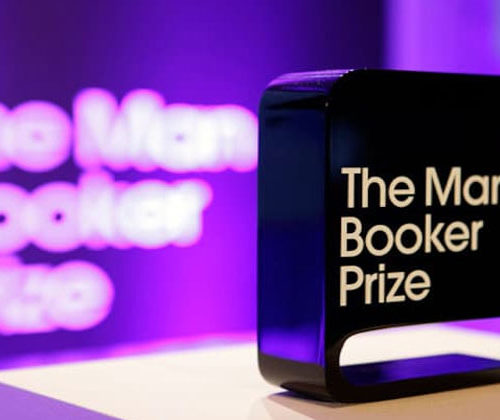
Storytelling is an art especially when the genre is fiction. As fiction is an imaginary world where the characters are created from the author’s mind . So the characters and situations in fictions are unreal, larger than life. So, to write for readers who enjoy reading fiction, the author needs to look at the trends the market is following along with the newness. When we talk of the market then we talk of saleability. There are two divisions in the fiction genre and they are called Literary fiction and Commercial or Popular fiction. Today we are going to discuss Literary Fiction vs Commercial Fiction. But before that we will learn about them individually first.
What is Literary Fiction?
To give a clear cut definition of literary fiction is not easy , as it overlaps with commercial fiction at times. It’s a broad and diverse genre. But still there are many features which define Literary fiction. These features includes :
- It is considered as a premium genre of writing.
When we say that it’s a premium genre of writing , it means that this fiction has made a mark in the biggest prizes in the publishing industry such as the Booker’s prize and the Pulitzer prize for fiction. So, if you come across any book which shows relation to these prestigious awards then you are most probably looking at a piece of Literary fiction.
- The crux of Literary fiction is character study and sketching.
Well in any fiction genre, character sketching is very important but it is very well defined in Literary fiction. But in other genres the plot takes the center stage whereas in Literary fiction the center stage is enjoyed by the characters. In this genre we see the more human or infact inhuman shades of the characters. This aspect makes this genre so intriguing, exciting and captivating. The author always tries to capture the reader’s mind and heart with the emotions his character goes through and that is why the connection with the audience is very strong in Literary fiction especially with the characters. This bond is the highlight of Literary fiction.
- Style and theme are also a very integral part of Literary fiction writing.
After the characterization the other important aspect of Literary fiction is style and theme. Style is given far more importance in literary fiction and usually involves usage of the prose, phrases and vocabulary which has a very fancy and sophisticated linguistic touch. Many literary fictions are associated with a term called Purple Prose. Purple prose means that a prose which is so elaborate that it draws excessive attention to itself or in other words it specifically refers to an overblown description that fails to add to the text or sometimes distract from it. But with changing audiences even literary fiction is experimenting and the authors are trying to be more easy on language so that a reader enjoys it without a dictionary by his side.
Theme is an important part of literary fiction too. Depending on the author’s sensibilities themes do take center stage in literary fiction too. Themes are very detailed and form a major chunk of literary fiction especially in political, social , psychological aspects of the fiction. These themes need days and days of research to put out the facts and emotions related to the characters set in that particular theme.
- It gives creative liberty to the writer and thus is more experimental in nature.
One of the advantages which literary fiction authors enjoy is that they are free to experiment with the pace and development of the book. Readers are also looking for new experiences while reading literary fiction rather than a fixed formula.
- The overall feel of Literary fiction is realistic and introspective.
In most of literary fiction the tone of the characters are real as it is drawn from the internal conflicts of characters. These emotions of the characters are one of the driving souls of the plot. Not only are emotions and conflicts real, they are introspective too in nature, which are usually connected to the human psyche.
Suggested Read: Difference Between Copyediting And Proofreading
What is Commercial Fiction?
Well commercial fiction can be defined as a type of fiction which appeals to the masses and has a wide acceptance in terms of saleability because of its easy, understandable, approachable language. In layman’s terms this type of fiction is read for its entertainment value over the artistic quality.
Commercial fiction is also known as Genre Fiction, Mainstream fiction and Popular fiction. Its most important characteristic is its stories which are plot driven not character driven, and can be easily grouped into specific genres. Examples of popular commercial fiction genres are thriller, fantasy, science fiction, crime, horror and romance.
Difference Between Literary Fiction And Commercial Fiction:
By now you might have an idea what are the few differences between two fiction genres. Now we will discuss in some more detail Literary fiction vs Commercial fiction :
1. As we read that literary fiction crux is its characters whereas in Commercial fiction it is the plot which forms the crux.
2. Literary fiction is known for its artistic, linguistic quality and on the other hand commercial fiction is easy on language as it is written for masses. So, more and more people read it, as sales are of prime importance in the commercial fiction genre.
3. Literary fiction usually tackles complicated and intense themes and subjects like political, human psyche etc whereas in commercial fiction the plot is simple and non complex and very easy to understand by the common man.
4. Literary fiction audiences usually belong to literary people or the classes. Therefore the marketing is high end as most of the work usually gets associated with famous causes, personalities or book prizes. Although sales is difficult to achieve in this genre. But on the other hand as the name suggests , commercial fiction has high sales and is easy to market too. As there is a wide range of audience to capture.
5. Literary fiction is difficult to define as sometimes it overlaps with other fiction too. But commercial fiction can be easily classified into a genre.
In this discussion of Literary fiction vs commercial fiction, if we measure the success in terms of saleability then commercial fiction is the winner as its reach is way ahead of literary fiction. But if we talk about reviving old hidden linguistic gems then literary fiction is the masterpiece of the art. One is considered as a mass genre and other is considered as the class genre. In real perspective both are important as readers are available for both genres. So at times the choice is very personal to a reader specially.

Related Post

Amazon Book Marketing Services
The largest book retailer globally that has conquered the online




